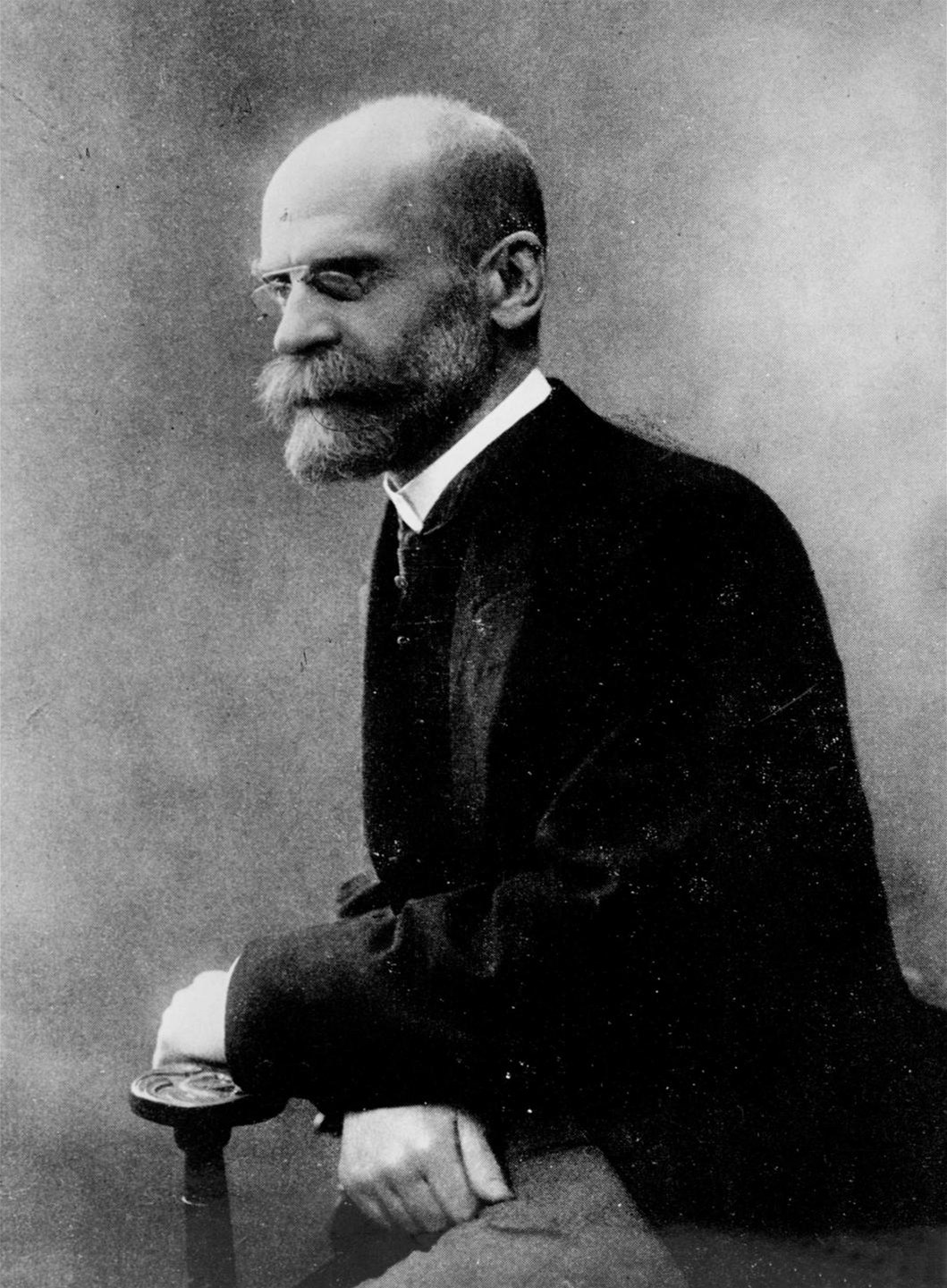Imagine a bustling city, filled with millions of interactions occurring every minute—people rushing to work, families enjoying meals, and strangers sharing fleeting glances. What binds these individuals together? How do these seemingly disparate actions create a cohesive society? This is the fundamental question that fascinated Emile Durkheim, a pioneering sociologist whose work laid the foundation for understanding the complex fabric of social life.
.png)
Image: webapi.bu.edu
Durkheim’s theories, though formulated over a century ago, remain remarkably relevant in today’s world. His insights into social solidarity, deviance, and the role of institutions continue to shape our understanding of how societies function. In this exploration, we’ll delve into the core tenets of Durkheim’s sociology, examining his concepts of social facts, anomie, and the collective conscience. We’ll also explore how his theories continue to resonate in contemporary social issues.
Understanding Social Facts
At the heart of Durkheim’s sociology lies the concept of “social facts.” He argued that society is not merely the sum of its individual parts, but a distinct entity with its own characteristics and constraints. Social facts, like laws, customs, norms, and values, exert a powerful influence on individuals, shaping their behavior and perceptions. They are “things” external to the individual, objective realities that exist independently of individual consciousness.
Durkheim viewed social facts as the primary subject matter of sociology. He believed that these external forces, rather than individual psychology, were the true drivers of social phenomena. He famously used the analogy of language to illustrate this point. While an individual can choose their words, the language itself is a social fact that exists outside of any single person. It is a collective creation that constrains and enables communication.
Social Solidarity: The Glue that Holds Societies Together
Durkheim’s work also explored the nature of social solidarity, which he defined as the shared beliefs and values that unite members of a society. He understood that social solidarity is crucial for maintaining social order and stability. In his seminal work, *The Division of Labor in Society*, Durkheim identified two primary forms of social solidarity:
- Mechanical Solidarity: Predominant in traditional societies with strong collective beliefs and shared values. This form of solidarity is based on similarity, with individuals performing similar tasks and adhering to the same norms and customs.
- Organic Solidarity: Characterized by increasing specialization and interdependence in modern societies. This form of solidarity arises from the division of labor, where individuals with different skills and roles rely on each other for the functioning of society.
Anomie: The Breakdown of Social Order
Durkheim’s analysis of social solidarity led him to explore the concept of anomie. He argued that when social norms and values weaken, individuals experience a state of anomie, characterized by feelings of confusion, meaninglessness, and lack of direction. This state of normlessness can lead to increased social problems, such as crime, suicide, and social unrest.
Durkheim saw anomie as a direct result of rapid social change, particularly the shift from traditional to modern societies. As societies become more complex and individualized, the shared values and norms that held them together can become fragmented. Durkheim believed that to combat anomie, societies needed to create new forms of social integration, such as professional organizations and community groups, that could provide individuals with a sense of purpose and belonging.

Image: en.wikipedia.org
Durkheim’s Influence on Contemporary Sociology
Durkheim’s theories continue to resonate in contemporary debates about social issues. His insights into social solidarity are still relevant in understanding the challenges of globalization, cultural diversity, and the rise of social movements. His work on anomie and deviance remains important for studying crime, inequality, and social unrest.
One of the key insights from Durkheim’s work is the importance of social institutions in shaping individual behavior and maintaining social order. This understanding is increasingly relevant in the digital age, where the rise of social media and online communities is creating new forms of social interaction and potentially influencing social norms and values.
Tips and Expert Advice for Understanding Durkheim
To truly grasp the depth of Durkheim’s work, it’s essential to understand his context. He wrote during a period of rapid social change, witnessing the transition from traditional to modern societies. By understanding the historical backdrop, you’ll better appreciate the significance of his concepts and how they relate to contemporary issues.
Furthermore, explore his key works such as *The Division of Labor in Society*, *Suicide*, and *The Elementary Forms of Religious Life*. These works provide valuable insights into his theoretical framework and methodological approach. Remember, Durkheim’s sociology is not just about abstract ideas; it’s about understanding the real-world forces that shape human behavior and social relationships.
FAQ
Q: What is the main difference between mechanical and organic solidarity?
A: Mechanical solidarity is characterized by similarity and shared beliefs, found in traditional societies, while organic solidarity arises from specialization and interdependence, prevalent in modern societies.
Q: How did Durkheim explain suicide in his work?
A: Durkheim explored the social causes of suicide, arguing that low social integration and anomie increased the likelihood of suicide.
Q: What is the relationship between anomie and social change?
A: Durkheim believed that rapid social change could lead to anomie, as shared norms and values weaken, leaving individuals feeling disconnected and lost.
Q: How are Durkheim’s theories relevant to contemporary society?
A: His concepts of social solidarity, anomie, and the role of institutions continue to offer valuable insights into issues such as globalization, cultural diversity, and the impact of technology on social life.
Emile Durkheim Theory Sociology
https://youtube.com/watch?v=1yEpaD_dd3U
Conclusion
Emile Durkheim’s pioneering work in sociology laid the groundwork for understanding the complex forces that bind societies together. From his concept of social facts to his exploration of social solidarity and anomie, Durkheim’s insights continue to be relevant for analyzing social issues and understanding the intricacies of human behavior.
Are you interested in learning more about Emile Durkheim’s theories? Share your thoughts and questions below!



/GettyImages-173599369-58ad68f83df78c345b829dfc.jpg?w=740&resize=740,414&ssl=1)


